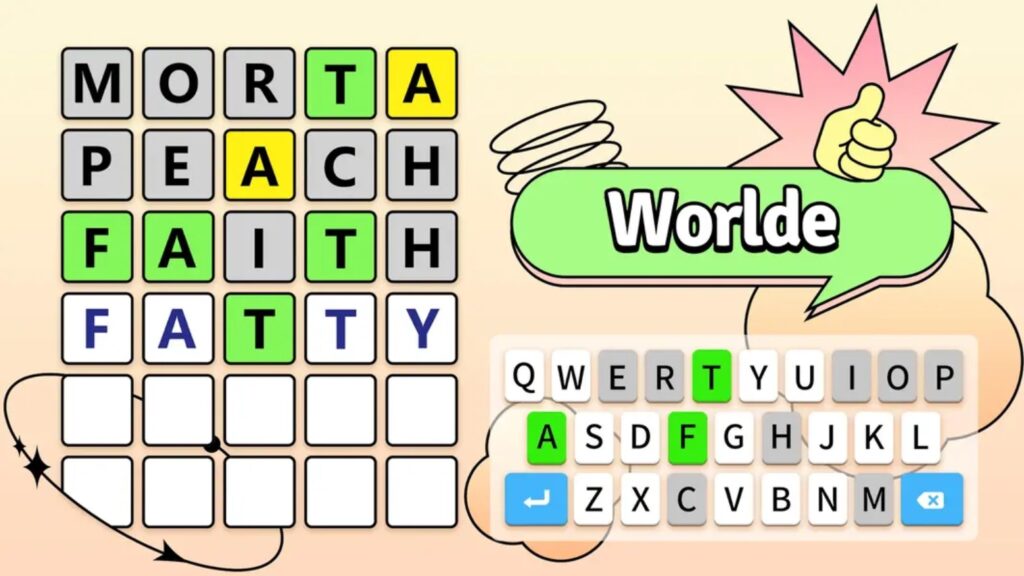In the vast landscape of word games, Cowordle stands out as a unique and captivating challenge for language enthusiasts and casual gamers alike. This innovative game combines elements of classic word puzzles with modern twists, creating an engaging and educational experience. Whether you’re a seasoned wordsmith or just looking for a fun way to pass the time, Cowordle offers a delightful journey through the intricacies of language. In this article, we’ll explore the origins of Cowordle, how to play, strategies for success, and the benefits of engaging with this intriguing game.
The Origins of Cowordle
Cowordle is a relatively new addition to the world of word games, emerging from the creative minds of game developers who sought to combine the best elements of traditional word puzzles with contemporary gaming trends. Inspired by the popularity of games like Wordle and Scrabble, Cowordle takes the concept of word guessing to a new level. The game was designed to be both challenging and accessible, catering to a wide range of players from different age groups and linguistic backgrounds.
The developers aimed to create a game that not only entertained but also educated players, enhancing their vocabulary and cognitive skills through an enjoyable medium. By leveraging modern technology and user-friendly interfaces, Cowordle quickly gained a following among word game enthusiasts and casual gamers.
How to Play Cowordle
Playing Cowordle is both simple and complex, making it an appealing choice for a broad audience. The game revolves around guessing a hidden word within a limited number of attempts. Each guess must be a valid word, and the game provides feedback on the accuracy of the guesses. The feedback usually consists of colored indicators that show which letters are correct and in the right position, which letters are correct but in the wrong position, and which letters are not in the word at all. This system helps players gradually narrow down the possibilities and zero in on the correct word.

To start playing Cowordle, follow these basic steps:
- Select a difficulty level: Cowordle offers various difficulty levels, ranging from easy to hard. The difficulty level determines the length of the hidden word and the number of attempts allowed. Beginners may start with shorter words and more attempts, while seasoned players might prefer the challenge of longer words and fewer guesses.
- Make your guesses: Enter your first guess and observe the feedback provided by the game. Use the colored indicators to adjust your subsequent guesses. For example, a green indicator might signify a correct letter in the correct position, while a yellow indicator might show a correct letter in the wrong position.
- Refine your strategy: Based on the feedback, refine your guesses to eliminate incorrect letters and positions. Continue this process until you either guess the correct word or run out of attempts. The game encourages a process of elimination and logical deduction, which can be both challenging and satisfying.
- Learn and improve: Each game of Cowordle is an opportunity to enhance your vocabulary and sharpen your problem-solving skills. Review your guesses and feedback to learn from your mistakes and improve your strategies for future games. Over time, you’ll develop a better sense of word patterns and common letter combinations.
Strategies for Success in Cowordle
Mastering Cowordle requires a blend of linguistic knowledge, logical reasoning, and strategic thinking. Here are some strategies to help you excel in the game:
- Start with common letters: Begin your guesses with words that contain common letters such as vowels (A, E, I, O, U) and frequently used consonants (R, S, T, L, N). This increases the likelihood of identifying correct letters early on. Starting with words like “train” or “stare” can provide useful initial feedback.
- Pay attention to feedback: The colored indicators are crucial for narrowing down the possibilities. Focus on letters that are confirmed to be correct and in the right position, and adjust your guesses accordingly. If a letter is marked as correct but in the wrong position, try placing it in different positions in your next guesses.
- Use elimination tactics: As you receive feedback, systematically eliminate letters that are not part of the hidden word. This helps reduce the number of potential words and makes it easier to pinpoint the correct one. For example, if a letter is marked as incorrect, avoid using it in subsequent guesses.
- Think about word structure: Consider common word patterns and structures when making your guesses. For example, certain letter combinations are more likely to appear together (e.g., “TH,” “CH,” “SH”). Use this knowledge to inform your guesses. Understanding common prefixes, suffixes, and root words can also be beneficial.
- Practice regularly: Like any skill, proficiency in Cowordle comes with practice. Regularly playing the game will help you develop a better sense of word patterns and improve your overall strategy. Over time, you’ll become more adept at quickly identifying possible words based on partial feedback.
- Expand your vocabulary: The more words you know, the better equipped you’ll be to guess the hidden word. Reading books, playing other word games, and engaging in vocabulary-building activities can all contribute to your success in Cowordle.
The Benefits of Playing Cowordle
Engaging with Cowordle offers numerous benefits beyond simple entertainment. Here are some of the key advantages of playing this word game:
- Enhanced Vocabulary: Cowordle challenges players to think creatively and expand their vocabulary. By encountering new words and experimenting with different letter combinations, players can significantly improve their language skills. This can be especially beneficial for students and language learners.
- Improved Cognitive Skills: The game requires logical reasoning, pattern recognition, and problem-solving abilities. Regularly playing Cowordle can sharpen these cognitive skills, making them applicable in various real-life scenarios. These skills can also be useful in academic and professional settings.
- Stress Relief: Word games like Cowordle provide a relaxing and enjoyable way to unwind. The focus required to solve each puzzle can serve as a distraction from daily stressors, promoting mental well-being. Taking a break to play Cowordle can be a great way to recharge and reduce stress.
- Educational Value: Cowordle is an excellent tool for language learners. It offers a fun and interactive way to practice spelling, grammar, and vocabulary, making it an effective supplement to traditional language learning methods. Teachers and parents can use Cowordle as an educational resource to engage students in a fun learning activity.
- Social Interaction: Cowordle can be played individually or with friends and family. Playing the game with others fosters social interaction and can be a great way to bond over a shared love of language and puzzles. Multiplayer modes and online leaderboards add a competitive element that can enhance the social experience.
Cowordle in the Digital Age
The rise of digital technology has transformed the way we engage with word games, and Cowordle is no exception. Available on various platforms, including mobile apps and online websites, Cowordle offers convenient access to wordplay anytime, anywhere. The digital format also allows for regular updates, new word challenges, and interactive features that enhance the overall gaming experience.
Additionally, online leaderboards and multiplayer options add a competitive edge to Cowordle, encouraging players to improve their skills and achieve higher rankings. This sense of community and competition can motivate players to continually engage with the game and strive for better performance. The integration of social media features also allows players to share their progress and challenge friends, further enhancing the social aspect of the game.
Cowordle as a Learning Tool
Cowordle’s educational potential extends beyond individual play. Educators and parents can use the game as a tool to support language development in children and students. By incorporating Cowordle into classroom activities or home learning routines, educators can create an engaging and interactive learning environment. The game can be used to reinforce vocabulary lessons, practice spelling, and encourage critical thinking.

For language learners, Cowordle offers a practical and enjoyable way to practice new words and phrases. The game’s feedback system helps learners understand the structure and composition of words, making it easier to remember and use them correctly. By playing Cowordle regularly, language learners can build confidence in their language skills and improve their overall proficiency.
Conclusion
Cowordle is more than just a word game; it’s a journey through the intricacies of language and a testament to the enduring appeal of word puzzles. By combining elements of classic word games with modern digital conveniences, Cowordle offers an engaging and educational experience for players of all ages. Whether you’re looking to expand your vocabulary, sharpen your cognitive skills, or simply enjoy a relaxing pastime, Cowordle provides a rewarding and entertaining challenge. So, dive into the world of Cowordle and master the art of wordplay today!
Engaging with Cowordle can enhance your linguistic abilities, improve your cognitive skills, and provide a relaxing and enjoyable way to spend your time. As you become more proficient in the game, you’ll find yourself appreciating the beauty and complexity of language in new and exciting ways. So, whether you’re a casual gamer or a dedicated word enthusiast, Cowordle is sure to offer hours of fun and learning.


